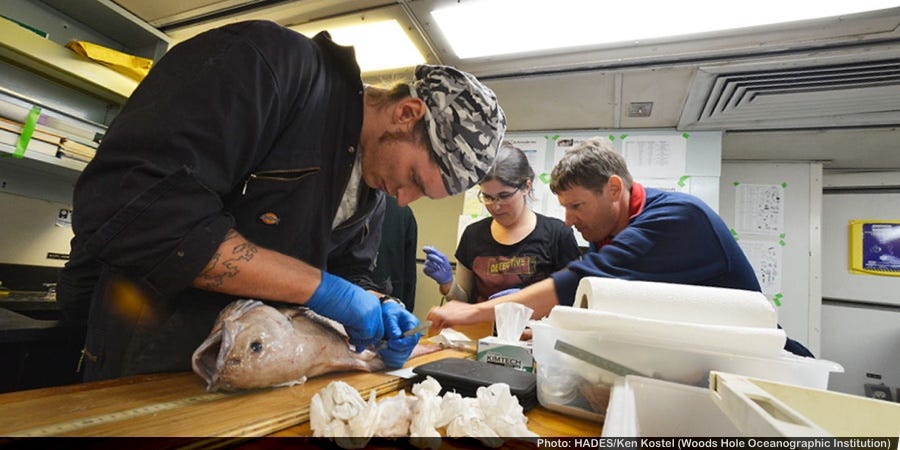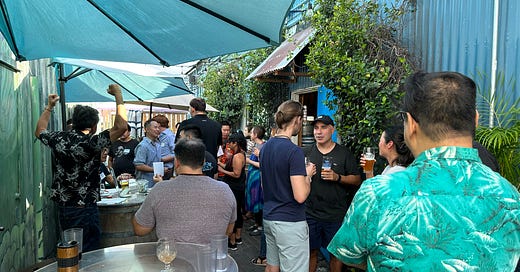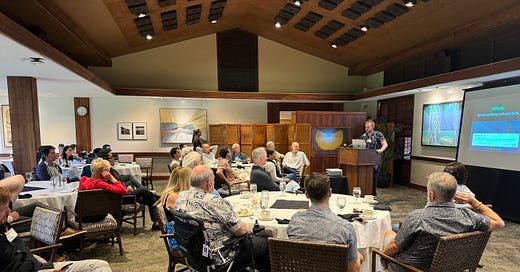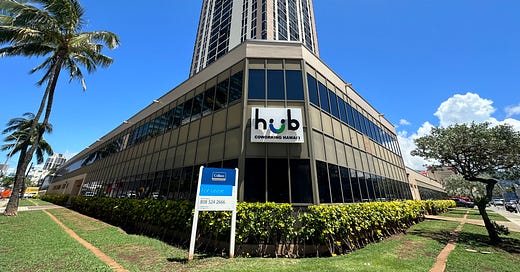Honolulu Science Cafe Goes Very, Very Deep

One of the world's leading deep sea researchers will be the featured speaker at this month's Honolulu Science Cafe.
Jeffrey Drazen, a professor of oceanography at the School of Ocean and Earth Science and Technology (SOEST), will speak on Tuesday about his research into the biology of the Mariana Trench, the deepest place on Earth. His passion for studying life in one of the planet's most remote and unforgiving environments also powers the Deep-Sea Fish Ecology Lab, which he leads.
Of course, simply getting access the subjects of his research is a big part of his work. Drazen specializes in the use of remotely operated vehicles (ROVs), submersibles, and autonomous camera systems to reach the Earth's "hadal zone," which not surprisingly is named after Hades, the Greek god of the underworld. At depths 20,000 to 35,000 feet (or more than six miles), there is intense pressure, no light, and limited nutrients to support life.
But there is life, even at the bottom of the Mariana Trench. Surprising amounts of life, in fact, only recently observed by the most ambitious of deep-sea expeditions. And Drazen knows these unusual, often alien-looking species better than most.
"It's very frustrating working on dead things," Drazen had said in a 2007 National Geographic News profile, in which he designed a special trap that would allow scientists to bring deep sea creatures to the surface alive. "Now we can have animals living in aquariums for the public to see or in aquariums for scientists to observe and study."
The other side of the coin is going down to observe deep-sea life where they live and even thrive. Drazen is a founding member of HADES (the Hadal Ecosystem Studies Program), based at the Woods Hole Oceanographic Institution and funded by the National Science Foundation, and has participated in 49 research cruises, 11 of them as chief scientist.
He participated in a groundbreaking expedition last year to the Kermadec Trench, which made countless discoveries but also demonstrated the perils of deep-sea work with the catastrophic loss of the $8 million ROV Nereus.
"It's definitely the last frontier on the planet," Drazen told KITV. "It was amazing to see these places that no one has laid eyes on berfore."
The October 2015 Honolulu Science Cafe will be held on Tuesday, Oct. 20 at JJ's Bistro (3447 Waialae Avenue) in Kaimuki, starting at 6 p.m. with a social and dinner hour followed by Drazen's presentation at 7 p.m. The event is free, but participants are encouraged to buy food and drinks from the venue. For more information, visit HI-Sci.org.











